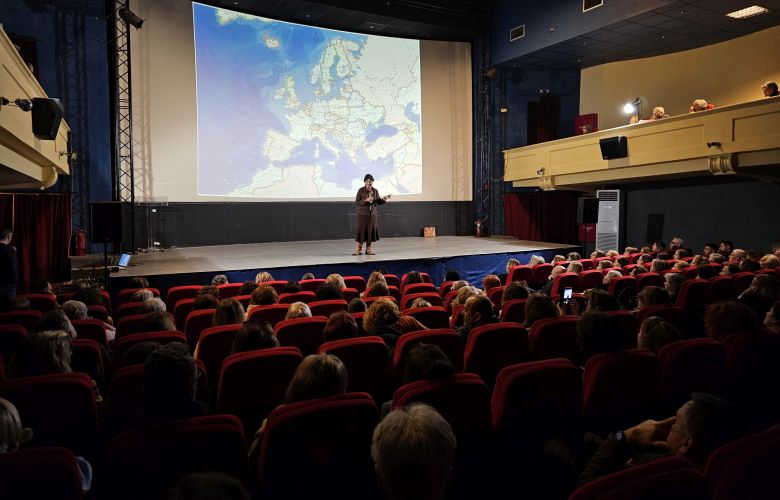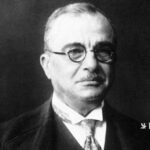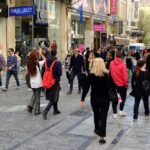Interviewing on the occasion of her lectures
“You feel optimistic when you meet so many people ready to give hours of their day, from their program, to hear some issues History. We are a people who still hold the flame of philanthropy within it, “says the distinguished historian and peer professor of the National and Kapodistrian University of Athens (NCA) Maria Efthimiou. And if she had to interrupt her speeches for some time, what would she miss the most? “I think contact with the world, because this process is a power supply,” he replies.
The conversation took place on the occasion of the circle of lectures entitled “The main points of the History of Hellenism” that the historian, at this time, in museums of the Piraeus Group Cultural Foundation (PIOP). This cycle began in March at the Silk Museum in Soufli, “stop” in April in Volos (Achilleion Cinema), and will continue on Sunday, May 4, 2025 (10:30) at the Outdoor Museum of Water Museum in Dimitsana at 10:30 pm at 10:30 pm May 2025 (10:30 pm) at the Museum of Olive and Greek Oil in Sparta.
“I was pleased to accept the proposal of the Piraeus Group Cultural Foundation for a circle of lectures aimed at highlighting central points in the history of Hellenism. It is a fruitful collaboration with the PIOP museums, which are separate and honor Greece, ”she notes in RES-EIA for the collaboration that, after the summer, will continue in other Museums of the Cultural Club. And what points in Greek history stands out?
“In my speech I stand in the Greek language and how it was strengthened and the common language of communication and education of the eastern Mediterranean and the Black Sea beaches for about 1,000 years has become. This is linked to the main economic activity of the Greeks of antiquity, who were wicked sailors, sea traders -and they created colonies, that is, facilities in various places, which have become the beginning of many today’s important cities in the Mediterranean. The second is shipping and the third is the education, which the Greeks performed at all times -from antiquity and Byzantium to the Turkish occupation and modern Greece. I also stand in places in modern Greek history that relate to the period from the creation of the Greek state in 1830 to the present day, “the RES-EIA interlocutor informs about the content of her lectures in which she unfolds key points of Greek history from Mycenaean years to the present day.
Each speech of this particular circle of PIOP has a four -hour duration -which is not a deterrent to arrival, as there is no lecture by the historical, always long, that is not overwhelmed by people, as happened in Soufli and Volos. Where in her opinion is this popularity? “I think because we Greeks are philanthropists and philanthropists. In addition, maybe because I’m trying to give the central, big spots. I believe that someone who is not his job to deal with history in detail is facilitated if he has a framework of things. Based on this framework, then with his philanthropy, it is easy to deepen as much as he wishes. So I’m trying to be understandable what I say. It makes no sense to start tiring the other with details that he can’t classify, “he replies to RES-EIA.
At the same time, the themes of her lectures often pleasantly surprises -such as the history of the nutrition or the history of the communal -prosthetic life, recently carried out in the context of the cooperation of the NRC with the Municipality of Athens. How does he choose them? “Some crucial issues of human life I think often do not emerge as much as they deserve. Both the history of nutrition and the issue of individual ownership are interested in each of us. Indeed, the issues of communion are also political -we do not forget that whole ideologies have moved around this reality, “M. Efthimiou told RES -EIA, which does not hide its concern about the addiction we have as a people in the conflict. “It’s something that hurts us heavy, but we do it with pleasure and continue it self -destructive even now,” he concludes.






